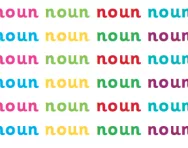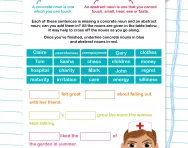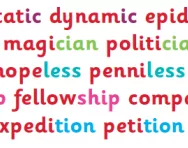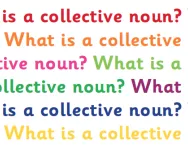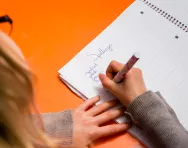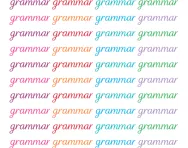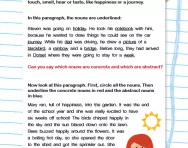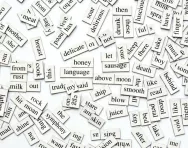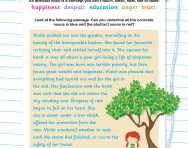Important update from TheSchoolRun
For the past 13 years, TheSchoolRun has been run by a small team of mums working from home, dedicated to providing quality educational resources to primary school parents. Unfortunately, rising supplier costs and falling revenue have made it impossible for us to continue operating, and we’ve had to make the difficult decision to close. The good news: We’ve arranged for another educational provider to take over many of our resources. These will be hosted on a new portal, where the content will be updated and expanded to support your child’s learning.
What this means for subscribers:
- Your subscription is still active, and for now, you can keep using the website as normal — just log in with your usual details to access all our articles and resources*.
- In a few months, all resources will move to the new portal. You’ll continue to have access there until your subscription ends. We’ll send you full details nearer the time.
- As a thank you for your support, we’ll also be sending you 16 primary school eBooks (worth £108.84) to download and keep.
A few changes to be aware of:
- The Learning Journey weekly email has ended, but your child’s plan will still be updated on your dashboard each Monday. Just log in to see the recommended worksheets.
- The 11+ weekly emails have now ended. We sent you all the remaining emails in the series at the end of March — please check your inbox (and spam folder) if you haven’t seen them. You can also follow the full programme here: 11+ Learning Journey.
If you have any questions, please contact us at [email protected]. Thank you for being part of our journey it’s been a privilege to support your family’s learning.
*If you need to reset your password, it will still work as usual. Please check your spam folder if the reset email doesn’t appear in your inbox.
What are concrete and abstract nouns?
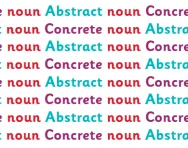
What are concrete and abstract nouns?
A noun is a 'thing'.
A concrete noun is something you can touch, such as a person, an animal, a place or a thing.
Concrete nouns can be common (man, city, film) or proper (Mr Edwards, London, Gone with the Wind). Proper nouns name a specific noun and always have a capital letter.


Download Fantastic FREE Grammar Resources!
- Perfect Punctuation Workbook
- Grammar Games Pack
- PLUS 100s of other grammar resources
An abstract noun is a feeling or concept that you cannot touch, such as happiness or education.
What are children taught at each stage of primary school regarding nouns?
Children are expected to know what a noun is in Year 2. They also learn about noun phrases and expanded noun phrases.
In Years 3 and 4, they learn about making nouns by adding prefixes and suffixes. They also learn to use pronouns rather than repeating the same noun.
They are not currently expected at any stage of primary school to know the difference between concrete and abstract nouns though they might discuss abstract nouns when looking at figurative language and personification.
In the Year 6 test, a child may be asked to turn an adjective into a noun by adding a suffix (for example: turning the adjective 'careless' into the abstract noun 'carelessness') however this question will not require them to have explicit knowledge of abstract nouns.
What could you do at home to help your child understand concrete and abstract nouns?
- Ask your child to go through their reading book and make a list of concrete nouns and a list of abstract nouns.
- Give your child a dictionary or thesaurus. Allow them to flick through and see if they can find any abstract nouns.
- Give your child a list of adjectives and ask them to change them into abstract nouns, for example: sad, dirty, bright, empty, cold (answers: sadness, dirtiness, brightness, emptiness, coldness). This is also a good spelling activity, as it requires your child to think about adding suffixes to adjectives ending in -y.
- Write some concrete nouns on red card and some abstract nouns on blue card (concrete nouns could be: tree, house, table, book, bread; abstract nouns could be: patience, weakness, wisdom, friendship, chaos). Turn all the cards over and ask your child to choose a red card and a blue card. They then need to think of a sentence containing both nouns.

